Danilo Ribeiro
Toward Effective AI Governance: A Review of Principles
May 29, 2025Abstract:Artificial Intelligence (AI) governance is the practice of establishing frameworks, policies, and procedures to ensure the responsible, ethical, and safe development and deployment of AI systems. Although AI governance is a core pillar of Responsible AI, current literature still lacks synthesis across such governance frameworks and practices. Objective: To identify which frameworks, principles, mechanisms, and stakeholder roles are emphasized in secondary literature on AI governance. Method: We conducted a rapid tertiary review of nine peer-reviewed secondary studies from IEEE and ACM (20202024), using structured inclusion criteria and thematic semantic synthesis. Results: The most cited frameworks include the EU AI Act and NIST RMF; transparency and accountability are the most common principles. Few reviews detail actionable governance mechanisms or stakeholder strategies. Conclusion: The review consolidates key directions in AI governance and highlights gaps in empirical validation and inclusivity. Findings inform both academic inquiry and practical adoption in organizations.
Towards Zero-Shot Frame Semantic Parsing with Task Agnostic Ontologies and Simple Labels
May 05, 2023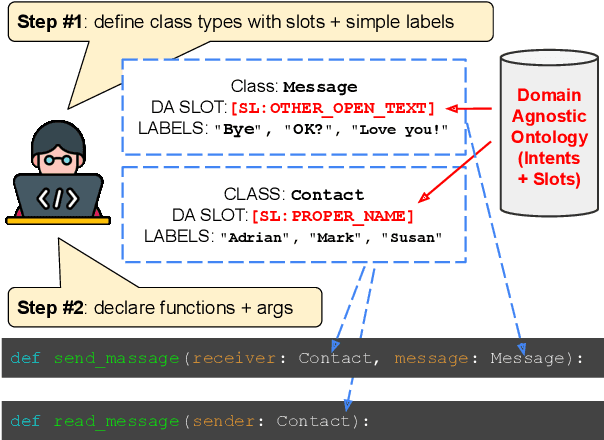


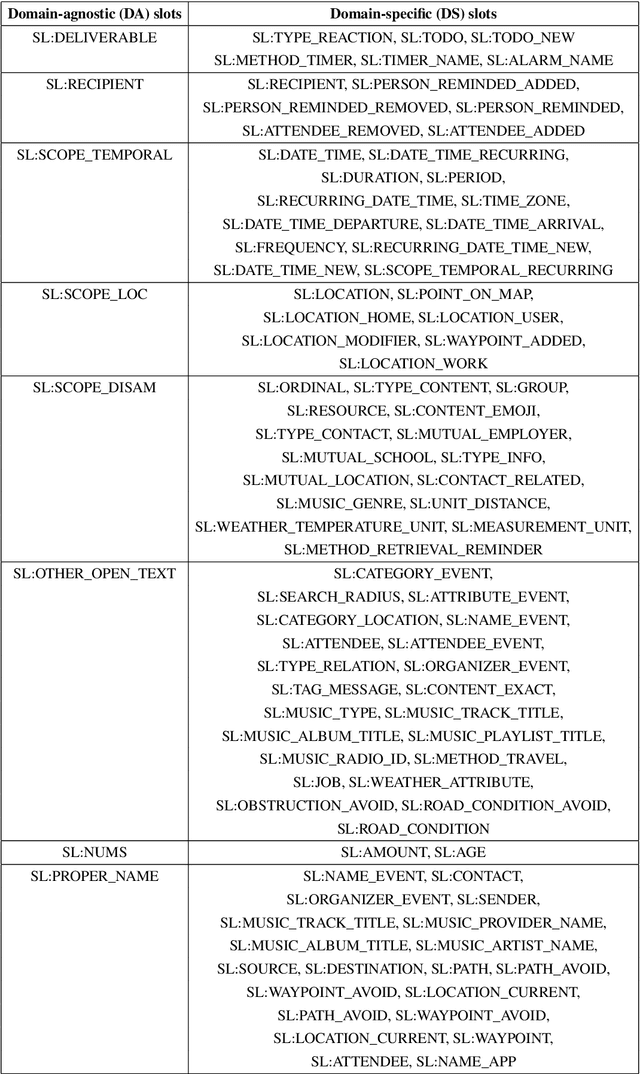
Abstract:Frame semantic parsing is an important component of task-oriented dialogue systems. Current models rely on a significant amount training data to successfully identify the intent and slots in the user's input utterance. This creates a significant barrier for adding new domains to virtual assistant capabilities, as creation of this data requires highly specialized NLP expertise. In this work we propose OpenFSP, a framework that allows for easy creation of new domains from a handful of simple labels that can be generated without specific NLP knowledge. Our approach relies on creating a small, but expressive, set of domain agnostic slot types that enables easy annotation of new domains. Given such annotation, a matching algorithm relying on sentence encoders predicts the intent and slots for domains defined by end-users. Extensive experiments on the TopV2 dataset shows that our model outperforms strong baselines in this simple labels setting.
STREET: A Multi-Task Structured Reasoning and Explanation Benchmark
Feb 13, 2023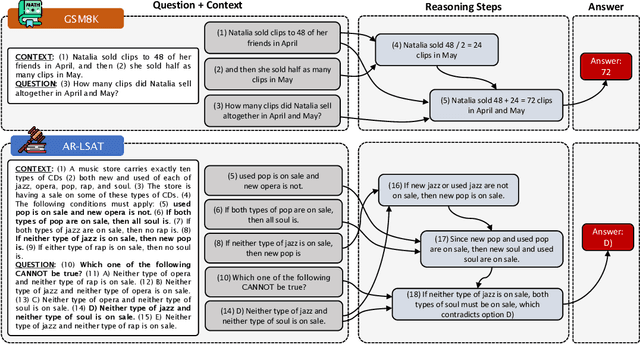


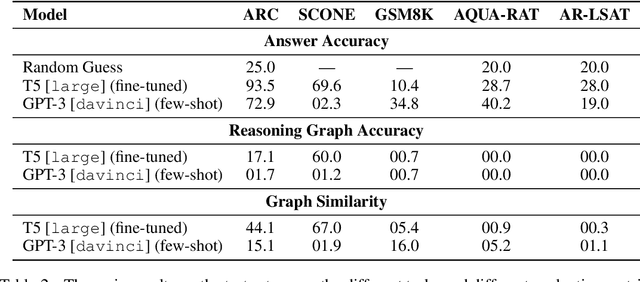
Abstract:We introduce STREET, a unified multi-task and multi-domain natural language reasoning and explanation benchmark. Unlike most existing question-answering (QA) datasets, we expect models to not only answer questions, but also produce step-by-step structured explanations describing how premises in the question are used to produce intermediate conclusions that can prove the correctness of a certain answer. We perform extensive evaluation with popular language models such as few-shot prompting GPT-3 and fine-tuned T5. We find that these models still lag behind human performance when producing such structured reasoning steps. We believe this work will provide a way for the community to better train and test systems on multi-step reasoning and explanations in natural language.
Entailment Tree Explanations via Iterative Retrieval-Generation Reasoner
May 18, 2022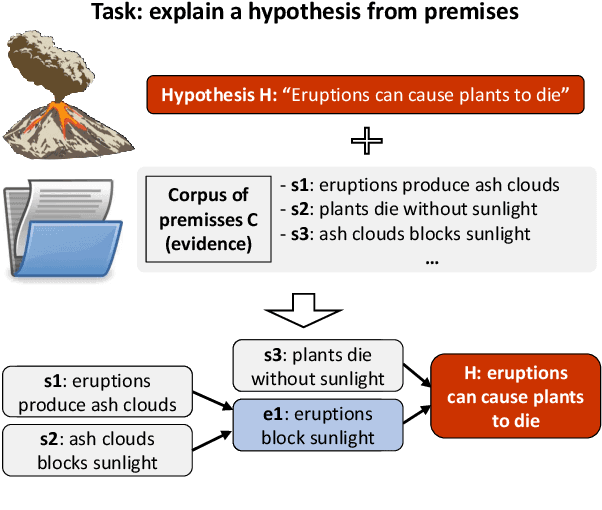
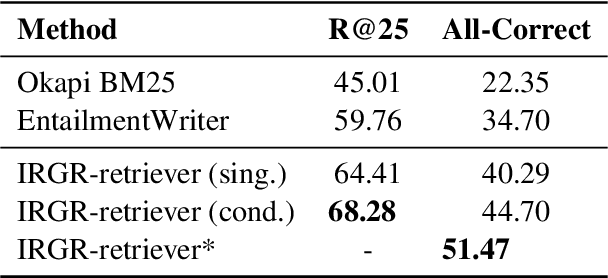


Abstract:Large language models have achieved high performance on various question answering (QA) benchmarks, but the explainability of their output remains elusive. Structured explanations, called entailment trees, were recently suggested as a way to explain and inspect a QA system's answer. In order to better generate such entailment trees, we propose an architecture called Iterative Retrieval-Generation Reasoner (IRGR). Our model is able to explain a given hypothesis by systematically generating a step-by-step explanation from textual premises. The IRGR model iteratively searches for suitable premises, constructing a single entailment step at a time. Contrary to previous approaches, our method combines generation steps and retrieval of premises, allowing the model to leverage intermediate conclusions, and mitigating the input size limit of baseline encoder-decoder models. We conduct experiments using the EntailmentBank dataset, where we outperform existing benchmarks on premise retrieval and entailment tree generation, with around 300% gain in overall correctness.
 Add to Chrome
Add to Chrome Add to Firefox
Add to Firefox Add to Edge
Add to Edge